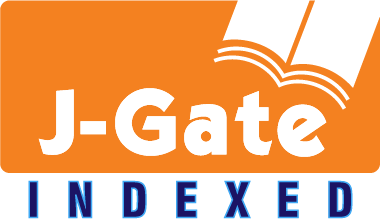AN OVERVIEW OF CORRUPTION: PROBLEMS AND SOLUTIONS
Keywords:
Corruption, Corruption Perception Index, TurkeyAbstract
The problem of corruption is one of the fundamental problems that are waiting for solutions in the countries. Because, corruption in both developed and underdeveloped countries affects macroeconomic size such as investment, growth and income distribution in the economy. Corruption can be seen in different forms in every society. The purpose of this study is to give an overview of the problems and solutions to the fight against corruption. In this context, the concept of corruption and its possible effects on the countries have been examined.
Downloads
References
BALACHANDRUDU, K. 2006, Understanding Political Corruption, The Indian Journal of Political Science, 67 (4), 809-816.
BARDHAN, Pranab, 1997, Corruption and Development: A Review of Issues, Journal of Economic Literature, 35 (3), 1320-1346.
BEGOVIC, Boris, 2005, Corruption: Concepts, Types, Causes and Consequences, Center for International Private Enterprise Economic Reform Feature Service, 1-7.
BHAGWAN, Vishnu, 2007, Corruption & Good Governance, The Indian Journal of Political Science, 68 (4), 727-738.
BHARGAVA, Vinay, The Cancer of Corruption, World Bank Global Issues Seminar Series, October 2005.
CHETWYND, Eric, CHETWYND, Frances ve BERTRAM, Spector, Corruption and Poverty: A Review of Recent Literature Final Report, January 2003, Management Systems International 600 Water Street, SW Washington, DC 20024 USA.
CUERVO-CAZURRA, Alvaro, 2006, Who Cares About Corruption?, Journal of International Business Studies, 37 (6), 807-822.
DELAVALLADE, Clara, 2006, Corruption and Distribution of Public Spending in Developing Countries, Journal of Economics and Finance, 30 (2), 222-239.
ELIZABETH, Harrison, 2007, Corruption, Development in Practice, 17 (4/5), 672-678.
Governance for Development. World Bank, http://blogs.worldbank.org/governance/here-are-10-ways-fight-corruption (3 Aralık 2016).
GRAAF, Gjalt De, 2007, Causes of Corruption: Towards A Contextual Theory of Corruption, Public Administration Quarterly, 31 (1/2), 39-86.
GUPTA, Sanjeev, MELLO, Luiz De ve SHARAN, Raju, Corruption and Military Spending, IMF Working Paper, IMF Fiscal Affair Department, WP/00/23, February 2000,
Helping Countries Combat Corruption: The Role of The World Bank. http://www1.worldbank.org/publicsector/anticorrupt/corruptn/cor02.htm (1 Aralık 2016).
How Do You Define Corruption?. https://www.transparency.org/what-is-corruption/#define (2 Aralık 2016).
KAUFMANN, Daniel, AART, Kraay ve MASTRUZZI, Massimo, Measuring Corruption: Myths and Realities, The World Bank, December 2006. http://www1.worldbank.org/publicsector/anticorrupt/corecourse2007/Myths.pdf (4 Aralık 2016).
KPMG in Central and Eastern Europe Ltd., 2011, Measuring and Comparing Corruption.
KURER, Oskar, 1993, Clientelism, Corruption and the Allocation of Resources, Public Choice, 77 (2), 259-273.
LAMBSDORFF, Johann Graf, 2007, The Institutional Economics of Corruption and Reform, Theory, Evidence and Policy, Cambridge University Press.
LIPSEY, Roger, 2001, PwC’s Opacity Index: A Powerful New Tool for Global Investors, Journal of Corporate Accounting & Finance, 12 (6), 35-44.
MO, Pak Hung, 2001, Corruption and Economic Growth, Journal of Comparative Economics, 29 (1), 66-79.
NECK, Stephan, Measuring Corruption in Eastern Europe and Central Asia: A Critique of the Cross-Country Indicators, World Bank Policy Research Working Paper 3968, July 2006.
PAOLO, Mauro, 1998, Corruption and the Composition of Government Expenditure, Journal of Public Economics, 69 (2), 263-279.
ROHWER, Anja, Measuring Corruption: A Comparison Between the Transparency International’s Corruption Perceptions Index and the World Bank’s Worldwide Governance Indicators, CES ifo Group Munich, CES ifo DICE Report 3/2009.
RYAN, Leo V, 2000, Combating Corruption: The 21 st-Century Ethical Challenge, Business Ethics Quarterly, Globalization and the Ethics of Business, 10 (1), 331-338.
SELİGSON, Mitchell A, 2002, The Impact of Corruption on Regime Legimitacy: A Comparative Study of Four Latin American Countries, The Journal of Politics, 64 (2), 2002, 408-433.
SHLEIFER, Andrei veVISHNY, Robert W, 1993, Corruption, The Quarterly Journal of Economics, 108 (3), 599-617.
Special Report on Corruption and Development Aid, Singapore Institute of International Affairs, August 2003.
STAPENHURST, Rick, The Media’s Role in Curbing Corruption, The International Bank for Reconstruction and Development, 2000.
SWALEHEEN, Mushfiq, 2011, Economic Growth with Endogenous Corruption: An Emperical Study, Public Choice, 146 (1/2), 23-41.
TANZI, Vito, 1999, Governance, Corruption and Public Finance: An Overview, Governance, Corruption and Public Financial Management (Ed.Salvatore Schiavo-Campo), Asian Development Bank, 1-17.
TAVITS, Margit, 2007, Clarity of Responsibility and Corruption, American Journal of Political Science, 51 (1), 218-229.
Transparency International, http://www.transparency.org/ (10 Aralık 2016).
MARTINEZ-VAZQUEZ, Jorge, ARZE, F. Javier ve BOEX, Jameson, Corruption, Fiscal Policy and Fiscal Management, USAID Press, June 2006.
WANLESS, Megan, 2013, The World’s Bank Fight Against Corruption: ‘See Nothing, Hear Nothing, Say Nothing’, Hydra Interdisciplinary Journal of the Social Sciences, 1(2), 38-48.
Downloads
Published
How to Cite
Issue
Section
License
When the article is accepted for publication in the Journal of Awareness, authors transfer all copyright in the article to the Rating Academy Ar-Ge Yazılım Yayıncılık Eğitim Danışmanlık ve Organizasyon Ticaret Ltd. Şti.The authors reserve all proprietary right other than copyright, such as patent rights.
Everyone who is listed as an author in this article should have made a substantial, direct, intellectual contribution to the work and should take public responsibility for it.
This paper contains works that have not previously published or not under consideration for publication in other journals.











